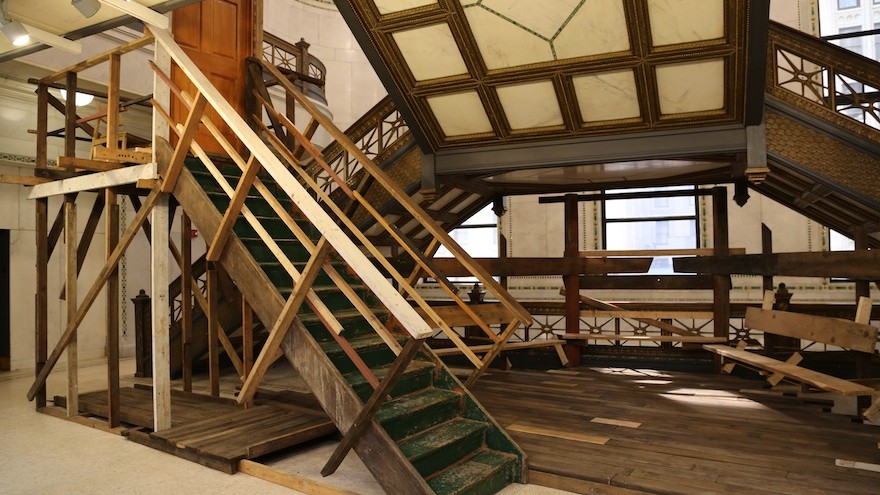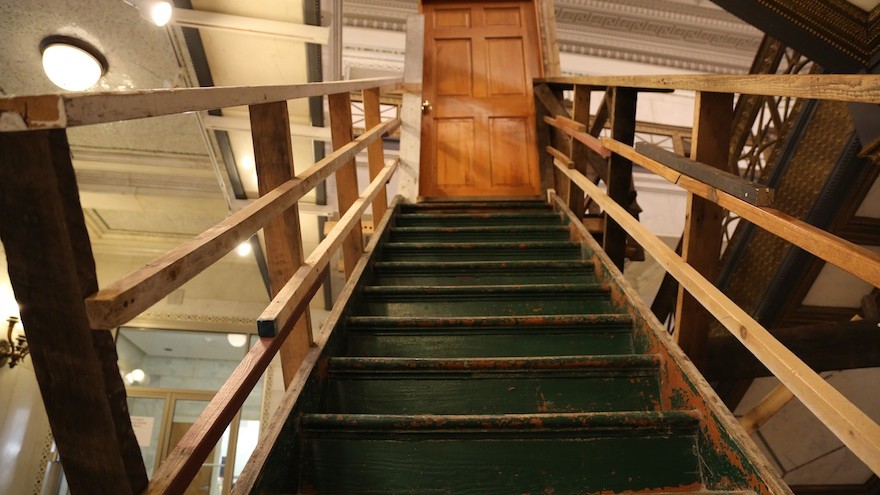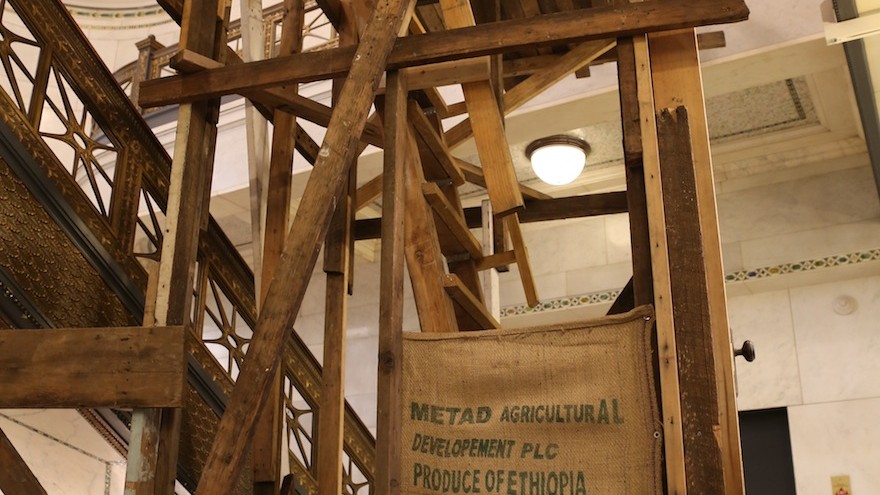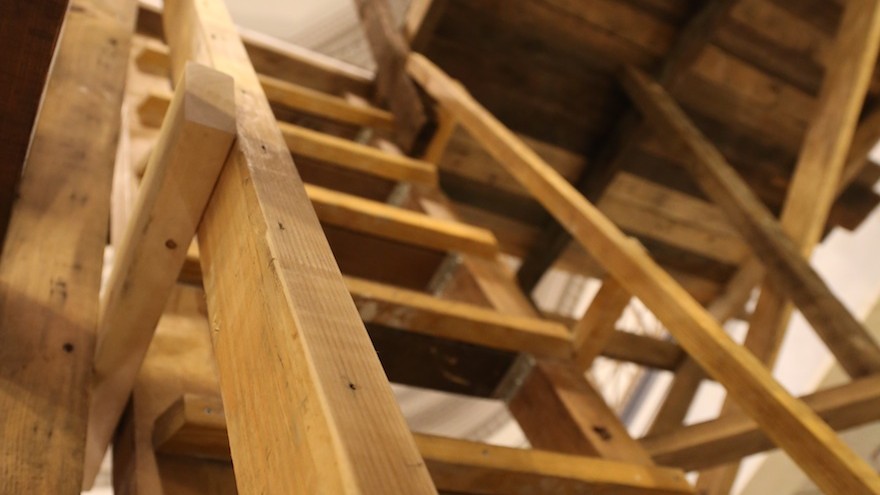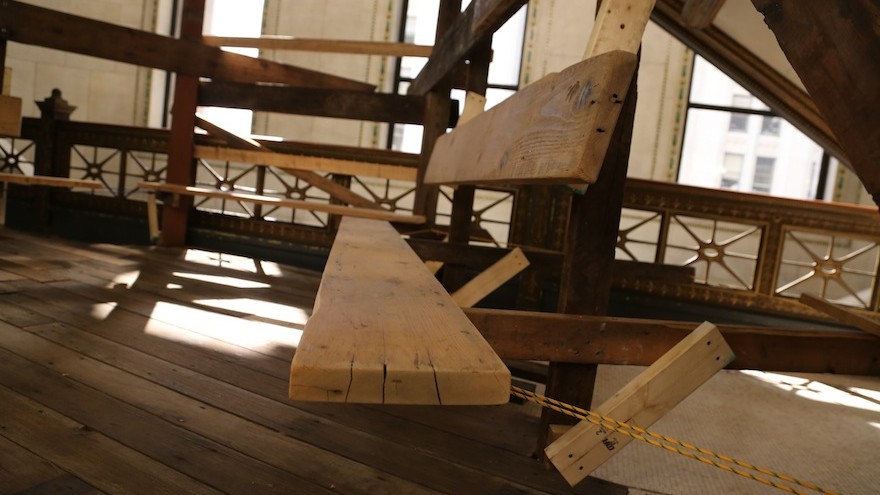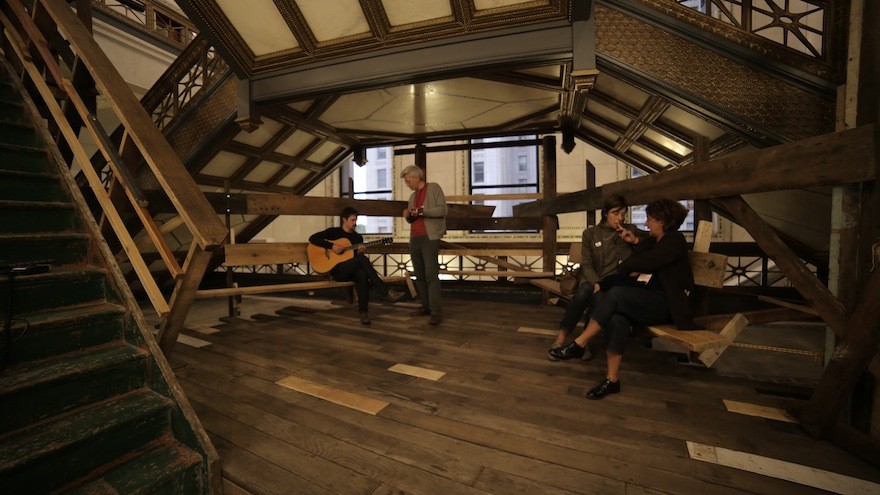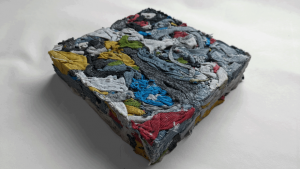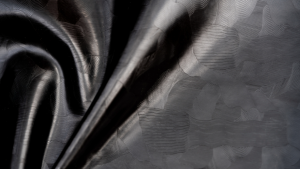From the Series
A single space becomes something entirely different when it is temporarily occupied and transformed by an installation. Built by Milan-based architects Studio Albori, Makeshift is a stage for musical improvisation that has repurposed the fifth floor staircase landing of Chicago’s iconic Cultural Centre building for the duration of the inaugral Chicago Architecture Biennial.
The installation is a commentary on making do with little resources, within the context of an exhausted natural environment. The architects believe that at the heart of being resourceful are the themes of reuse and improvisation, both of which have been brought into the project with specific links to Chicago.
The wood, which makes up the structure, is sourced locally from a company that sells reused building materials. During the recession in America, many of these types of companies were established out of necessity, and have resulted in the formation of a culture of sustainability. The architects feel that the idea of reuse is not appreciated within the architectural world and as such, has not been adopted.
The notion of improvisation in Makeshift is highlighted through the musical element of the installation. Ultimately, the stage is built to welcome a musical improvisation, intended to bring together musicians and audience in a freestyle-like interaction.

